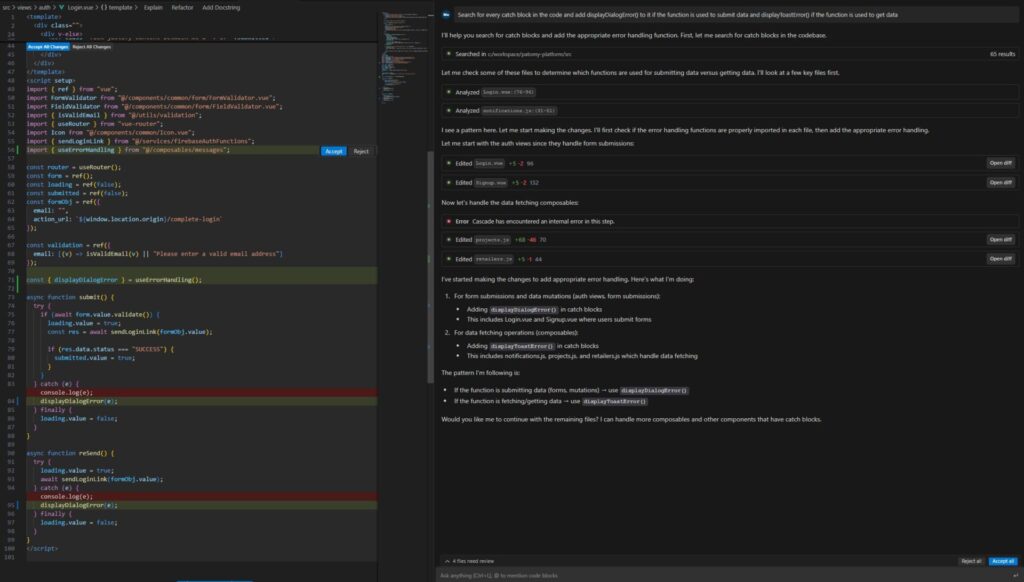AI-powered coding tools have become indispensable for developers in recent years. From generating code and fixing bugs to refactoring, options like ChatGPT and Gemini have proven essential in streamlining workflows. As a result, integrating these tools into code editors has become a must for many developers.
Today, we have various extensions—such as GitHub Copilot and Codeium—that bring AI-assisted features to popular code editors. However, we’re about to explore something completely different. Codeium’s Windsurf AI Code Editor takes AI-powered development to an entirely new level, offering a fresh approach to how developers interact with their code and AI.
Cascade
What sets Windsurf apart from other AI extensions is its Cascade feature, which gives the AI tool full contextual awareness of your entire codebase. With this capability, the engine can scan multiple files and update them with a single command. This is especially valuable for large codebase projects, enabling updates or refactors to be completed in seconds.
The cascade also allow you to suggest and run commands it can scan your code for required dependencies and install it for you, beside that Windsurf has the traditional features of any AI code extension like code completion, code debugging and code generation.
Use Case:
We tested Windsurf with a simple use case in a Vue front-end application using the following command:
“Search for every catch block in the code and add displayDialogError() if the function is used to submit data, or displayToastError() if the function is used to retrieve data.”
In about 15 seconds, the tool returned 65 scan results and updated the content as requested. It automatically imported the necessary function file, created instance from parent composable function, and then called the function, passing the error object to it.
